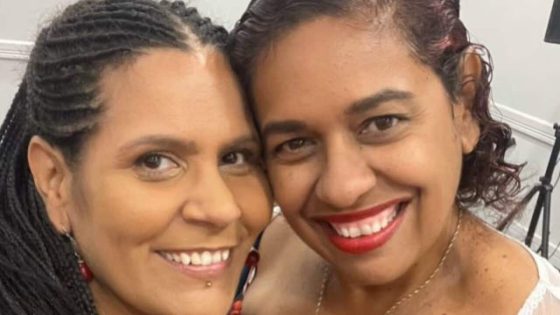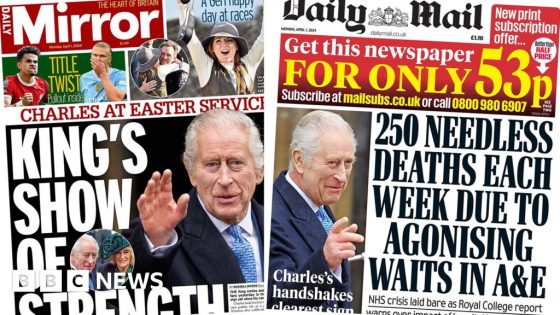Watch Insight’s episode The Dating Gamble — after 30 years of online dating, is it still a chance worth taking in the quest for love? Watch Tuesday 8:30pm on SBS or on SBS On Demand
Sisters Cassandra and Amanda are both into online dating. In fact, it’s a necessity for finding romance, given the lack of options in their regional community in the Northern Territory.
But even with the assistance of technology, finding love as single women in remote communities is still a challenge — albeit one made easier when tackled together.
The sisters live and swipe together to make sure that they don’t match with the same guy. They also run an online group that identifies serial cheaters using dating apps.
“It’s like a sisterhood-type group where we just warn other women about people we’ve met online,” Cassandra told Insight.
Like many singles, the sisters describe their relationship with dating apps as ‘complicated’.
Cassandra says she is determined to find love, despite being ghosted in the past. Source: Supplied
Cassandra recalls driving 900km for a date once and spending hundreds of dollars to meet with a match.
“I got to meet a lovely person. But after I’d met him for the weekend, unfortunately, like most dating, it just left me empty because then I was ghosted,” she said.
Despite the disappointment, Cassandra is still hopeful and says she will stay on the apps.
“In my heart, there’s hope that there is somebody out there and if it means staying on a dating app to find that person, I will,” she said.
When dating websites first came to the scene in the mid-1990s, there was still a social stigma attached to finding love online.
But the rise of dating apps in the past decade has fundamentally changed the way we look for casual dates and serious relationships.
Now a multi-billion-dollar industry, online dating faces criticism as more users report burnout and disillusionment and accuse the apps of being addictive.
In February this year, a group of users in the United States sued Match Group Inc, the owner of popular dating apps Tinder and Hinge.
They claimed the apps were designed to be addictive and based around a “predatory” business model aimed at retaining or growing paid subscriptions, rather than being ‘designed to be deleted’, as Hinge’s slogan would suggest.
Clinical psychologist Anastasia Hronis says people can develop an unhealthy relationship with dating apps. Source: Supplied
Our unhealthy relationships with dating apps
Anastasia Hronis, a clinical psychologist and academic at the University of Technology Sydney, has researched addiction and dating apps.
She says that, while many people have positive experiences with dating apps, some users can develop an unhealthy relationship with them.
Her research found that dating apps have design features that reproduce the psychologically addictive aspects of gambling.
“Dopamine is activated when something feels good. But it’s also activated in the pursuit of something feeling good,” Anastasia said.
“Before I actually even open the app, if I’m just thinking, ‘Let me check to see if I have any matches there,’ the dopamine is already activated.
“We see this with gambling, that it doesn’t actually require someone to win, but to almost win, to have that really reinforcing experience,” Anastasia said.
One factor that makes poker machines addictive is the rate at which they can be played, according to Anastasia.
“When we relate that to dating apps, we can very quickly swipe through profiles and we can do it anywhere at any time.”
The algorithm for finding love
Investment analyst Angus Donohoo has researched the online dating business and owns shares in the Match Group and Bumble, the largest dating app companies.
He first used dating apps when he moved to the US in 2014 and has since researched the way online dating companies use algorithms.
Angus Donohoo is a shareholder in various dating apps and has been researching their algorithms since 2014. Source: Supplied
“I think it’s a little bit like the scratchie where, just before you scratch, you think, ‘What if I win that $100,000? How will this change my life?’ But you become desensitised to it so quickly,” Angus told Insight
He says dating apps are actually about trying to change consumer behaviour so they keep coming back to it, not to find ‘the one’ and be done.
“The bottom 50 per cent of men get 1 per cent of the likes. The top 1 per cent of women get more likes than they can possibly deal with. So the apps structure their algorithms in a way that’s just trying to optimise for revenue, but create experiences for people that will get them to spend,” Angus said.
“I think finding love is kind of incidental to the business model of these apps. It might happen, but if it does, it’s kind of a fortunate coincidence.”
The three-month rule
Dating columnist Jana Hocking enjoys using dating apps and admits to feeling addicted to ‘new dating energy’.
“I’ll give them (dating apps) a solid three months, and then I’m looking for that high again. And it’s not a great thing to have; I’ve certainly suffered from it,” she told Insight.
“I think we’re now brought up in a world where, you know, we’ve got Uber Eats, we’ve got Netflix — everything we want immediately,” Jana said.
Jana Hocking writes about her dates for a living. Source: Supplied
Jana said she’s previously been hooked on swiping for love online and understands why it’s popular.
“We don’t want to get dressed up and go to the bar and try and flirt with a guy and bring our best selves. We want to do it from the comfort of our lounge, probably hungover on a Sunday in our pyjamas, putting up our best photos.”
However, she’s also experienced ‘dating app fatigue’.
“You do get a bit carried away and I get how it’s addictive,” Jana said.
And for more stories head to , hosted by Kumi Taguchi. From sex and relationships to health, wealth, and grief Insightful offers deeper dives into the lives and first-person stories of former guests from the acclaimed TV show, Insight.
Follow Insightful on the , , , or wherever you get your podcasts.






